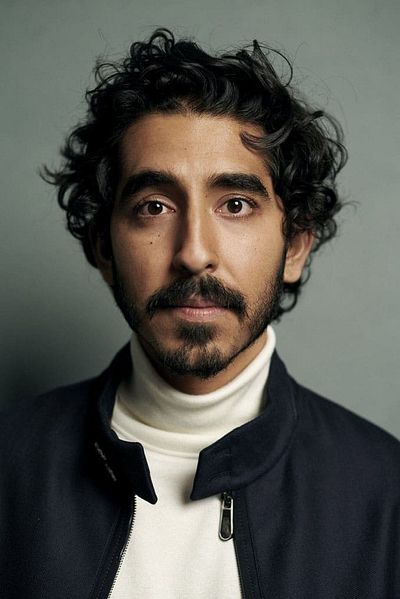A nameless fighter (Dev Patel) lives a tough and meagre existence on the streets of an Indian city as he begins to plot his revenge against the corrupt leaders who were directly responsible for the death of his mother. Infiltrating the seedy glamour of the city's nightlife, he charts a bloody path towards his enemies...
On the surface at least, 'Monkey Man' reads like a fairly standard revenge thriller in the vein of Park Chan-wook's 'Oldboy', the 'John Wick' series, or even any movie featuring Batman. A violent, maladjusted individual takes it upon themselves to right a wrong that's been festering for years and comes with a high bodycount. Yet in 'Monkey Man', there's a current in it of utilising these familiar signposts and tropes to say something deeper and more meaningful than violent thrills. Without giving too much away, the story takes in the massive scale of corruption in India, population displacement and the violent upheaval of communities, and the hijra of the Indian subcontinent.
Dev Patel is very much front and centre in 'Monkey Man', as well as directing and being one of three credited writers of the script. While it may seem slightly incongruous with Patel's career to date as a leading man, Patel is able to throw himself and others around the screen with ease like he's a latter-day Jackie Chan or a modern-day Keanu Reeves. In fact, John Wick is name-checked directly in the movie at least once, and Patel often finds himself suited and booted when he's violently offing henchmen. As if to underline the strength that Patel has for on-screen fighting, he's a former taekwondo competitor and, according to his Wikipedia page, fought in a martial arts championship here in Dublin back in 2004.
The supporting cast is equally a huge strength for 'Monkey Man', with Vipin Sharma and Sikandar Kher being two particular standouts. Kher plays Rana, the brutal face of government violence in the story, while Sharma plays Alpha, the leader of a hijra sect that takes Patel's character in and trains him to defend himself. The hijra, for those unaware, are a third gender that has been present on the Indian subcontinent since medieval times and has come under attack in recent years by the rise of Hindu nationalism and sectarianism in India. Admittedly, there's a lot of finer detail in the sociopolitical commentary of 'Monkey Man' that may be lost on Western audiences, but even without that, you still get the sense that there is an authentic voice at work and one that is speaking in a clear and distinct way to those who can hear it.
Leaving all that aside, Patel's eye for action cinematography and capturing the mood and vibe of a violent, neon-drenched cityscape is astounding for a first-time director. There's a deliberate aesthetic, echoing the likes of animes like 'Ghost In The Shell' while maintaining a distinctly Indian flair to the design. In later scenes, when Patel's nameless character is deep in training, the movie shifts towards Bruce Lee and Jean-Claude Van Damme as we see him kicking and punching innocent logs of wood to harden his fists. Again, Patel's use of familiar visual cues is tied with his own culture. His character's burnt hands, a sign of his low status in the city he's lived all his life, becomes his greatest asset.
For a directorial debut, 'Monkey Man' is filled with ambition and audacious leaps. It's violent but beautiful in parts, grim but with energetic visuals, and smart without being pretentious. In short, it's up there as one of the best action movies of the year.




















































































